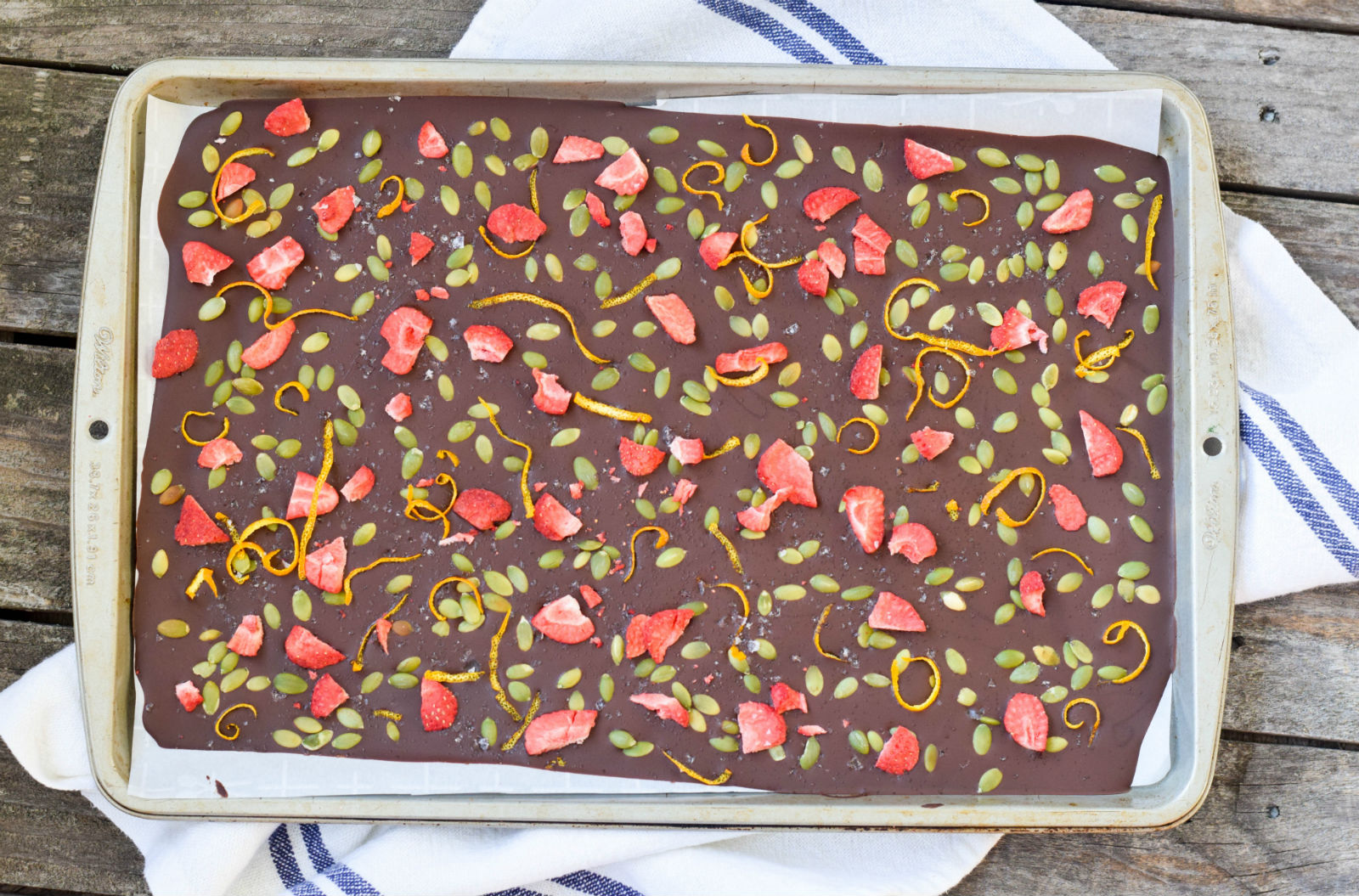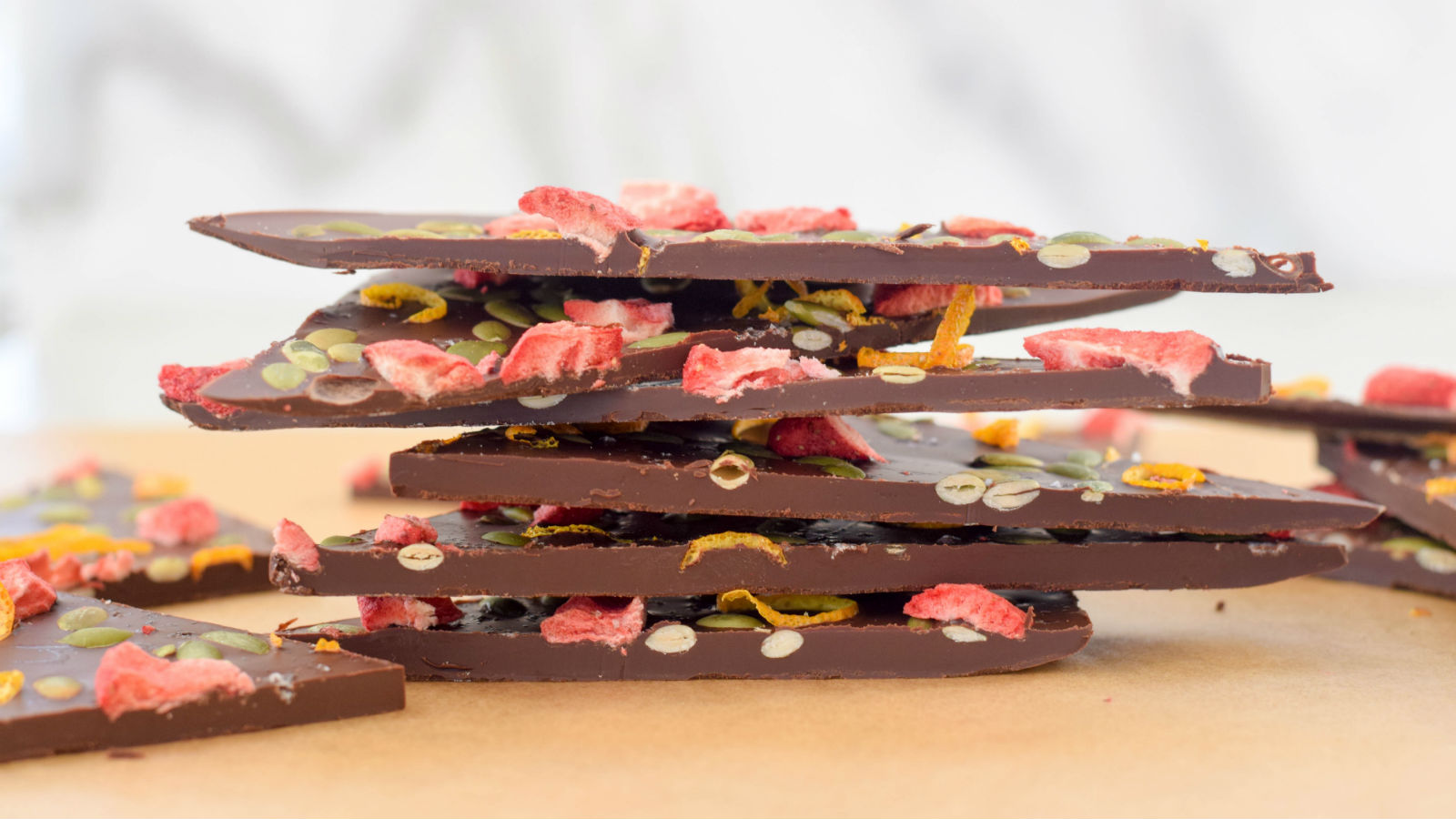Tu Bishvat is a pretty minor Jewish holiday, but to me, it absolutely has the widest appeal. Known as the “New Year for Trees,” Tu Bishvat is the perfect celebration for our times because it is all about environmental stewardship and celebrating the bounty of the plant world. Indeed, Tu Bishvat is a holiday that everyone can embrace as part of a commitment to a healthier and more sustainable 2019.
For those of you whose knowledge of Tu Bishvat is limited to “it’s in January,” here is some background. Tu Bishvat is a minor festival at the beginning of the Biblical agricultural cycle. In ancient times, worshippers celebrated the festival by bringing fruit offerings to the Temple. During the Renaissance, Jewish mystics created a new ritual to mark Tu Bishvat with a meal that was modeled on a Passover seder. At this meal, participants ate fruits and grains associated with the land of Israel — including wheat, barley, grapes, figs and pomegranates — and drank ceremonial glasses of wine. Sephardic Jews continued to celebrate Tu Bishvat through the centuries with feasts and visiting friends and family while the Ashkenazis Jews — for whom the holiday fell in the depths of winter — barely marked it.
Today, most American Jews think of Tu Bishvat — if they think of it at all — as a sort of Jewish Arbor Day. Many people honor the day by planting a tree or donating money for a tree to be planted in Israel, and some Jewish communities now host a contemporary version of a Tu Bishvat seder featuring 12 different fruits and four different wines. In my house, I like to celebrate Tu Bishvat with a vegetarian, or even vegan, meal, particularly one featuring ancient and biblical foods such as barley, dates or figs.
After all that healthy food, however, a small treat is in order. Chocolate bark studded with dried fruits and nuts is an easy and festive dessert that is definitely in keeping with the spirit of Tu Bishvat. Use dark or bittersweet chocolate with 70% or higher cocoa solids which has more antioxidants and less sugar than other varieties to stick to your New Year’s resolution to eat healthier. You may also want to seek out a fair trade brand of chocolate in keeping with the Jewish values of pursuing economic justice and ensuring fair treatment of workers. I recommend Divine Chocolate’s 70% Dark Chocolate Bar, which is excellent for all kinds of baking and easy to find in stores.
The Nosher celebrates the traditions and recipes that have brought Jews together for centuries. Donate today to keep The Nosher's stories and recipes accessible to all.

The easiest way to melt chocolate for chocolate bark is by heating it in your microwave for short intervals and then stirring. There is far less chance of the chocolate seizing or scorching using the microwave in this way than with the traditional double-boiler method.
Once the chocolate is melted and cooled slightly, simply spread it on a lined baking sheet and sprinkle on whatever toppings you desire, such as dried fruits, nuts, seeds, citrus peel, coconut and flaky sea salt. Almonds have particular significance as a symbol of good luck and fruitfulness for the Jewish people. But if you have nut allergies in your family, as I do, toasted raw pumpkin seeds or pepitas are an excellent substitute. For the best flavor, lightly toast any nuts or seeds and make sure all of your toppings are dry. Chocolate and moisture do not mix. So, for example, if using citrus peel, zest the citrus in advance and allow the peel to dry on waxed paper before using.
Once you have added the toppings to your bark, allow the chocolate to harden at room temperature for several hours and then break into pieces prior to serving.
Whether you are hosting a full Tu Bishvat seder this year or simply making an extra effort to savor the bounty of the plant world, this easy-to-make fruit-studded chocolate bark is the perfect way to end your festive meal.
Note: Bark will keep for up to 2 weeks in an airtight container.

Chocolate Bark with Pumpkin Seeds, Strawberries and Citrus Recipe
This vibrant chocolate bark combines rich dark chocolate with crunchy pumpkin seeds, tangy dried strawberries, and bright citrus zest for a sweet and zesty treat.
- Total Time: 20 minutes
- Yield: Serves 8
Ingredients
- 1 lb high-quality dark chocolate with at least 70% cocoa solids
- 1½ cups freeze-dried strawberries
- 1 cup green pumpkin seeds (pepitas), lightly toasted
- Zest of one orange allowed to sit until dry
- Flaky sea salt
Instructions
- Break the chocolate into pieces and place in a microwave-safe, heat-proof glass bowl.
- Line a rimmed baking sheet with parchment paper or a Silpat liner.
- Microwave chocolate on medium power for one minute. Stir. Microwave on high power for 20 seconds and stir again. If the chocolate is not completely melted at this point, continue to microwave at 20 second intervals followed by stirring until it is melted.
- Allow chocolate to cool slightly and pour onto lined baking sheet. Working quickly, spread chocolate with an offset spatula to between ¼ and ⅛ inch thickness.
- While chocolate is still wet, spread the dried strawberries, pumpkin seeds, and orange zest over the chocolate. Top with flaky sea salt if desired.
- Allow chocolate to harden completely at room temperature but do not refrigerate.
- When chocolate is hardened, cut or break into pieces.
Notes
Bark will keep for up to 2 weeks in an airtight container.
- Prep Time: 5 minutes
- Cook Time: 15 minutes
- Category: Dessert
- Method: One-pot
- Cuisine: Holiday




Leave a Comment